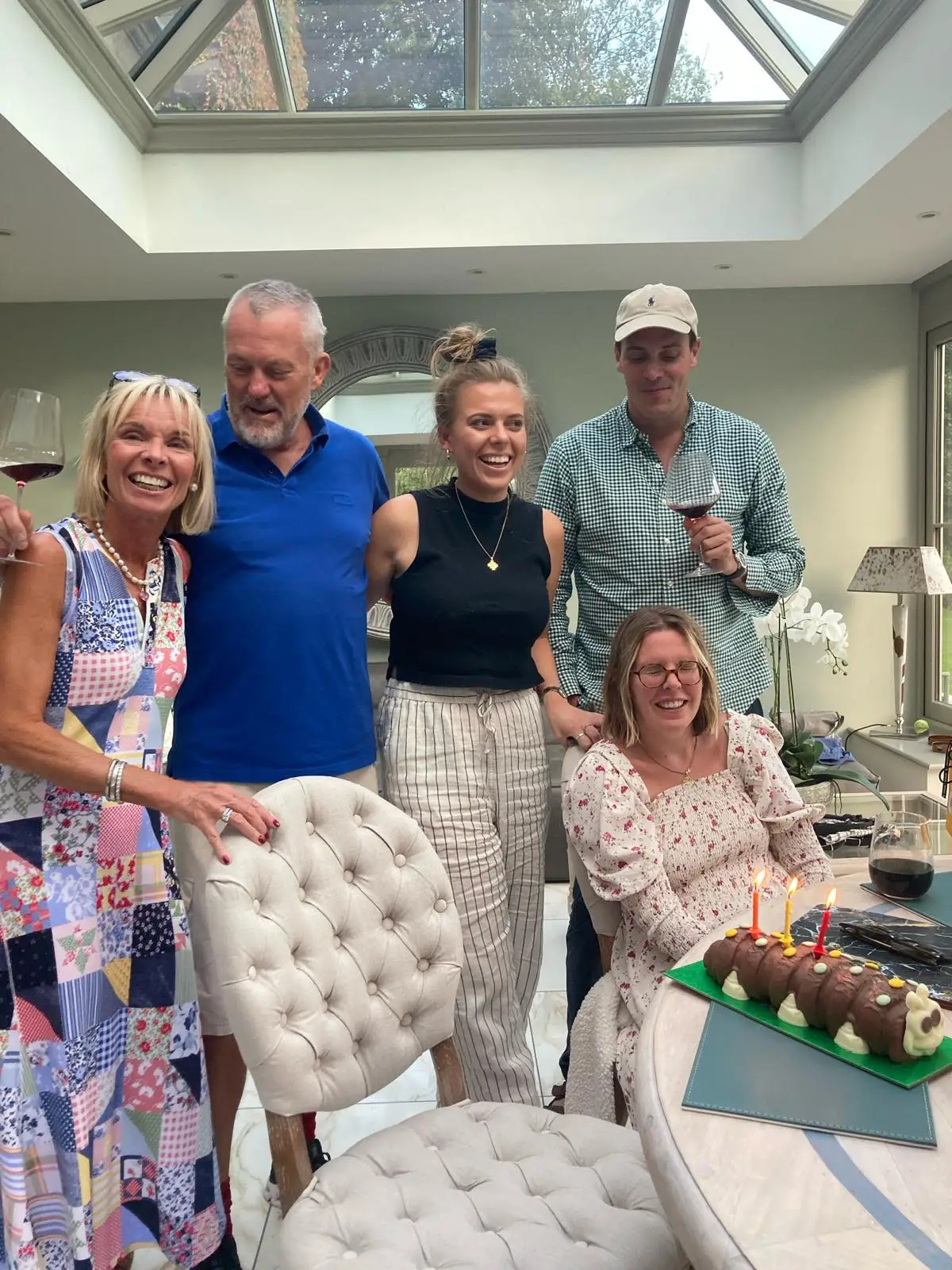
The family of a 31-year-old woman who died after being diagnosed with a rare form of dementia have just run the London Marathon to raise money for charity in her honour.
Gemma Illingworth died on 27 November last year after having been diagnosed with posterior cortical atrophy (PCA) in 2021.
Her family have more than doubled the £10,000 target they were hoping to raise for charity with their JustGiving page, which you can donate to here, as they explained that Gemma was the youngest person to be diagnosed with PCA.
Gemma's brother Ben, sister Jess and her best friend Ruth Pollitt all ran the London Marathon to raise money for the National Brain Appeal and Rare Dementia Support (RDS), saying they wanted to 'do Gemma proud'.
Advert

'She didn't fully understand what was going on'
Ben and Jess said that Gemma had always been 'ditsy' since childhood and struggled with her sight, co-ordination, sense of direction and ability to tell the time, but they weren't worried about her health.
Before her diagnosis she'd studied at Leeds College of Art and London Metropolitan University, then worked in New York and London.
She later moved to Manchester to be closer with her family and was living independently for a time, but eventually she needed more support from them.
Things got worse for Gemma during the Covid-19 lockdown after she became unable to see or understand what was on her computer screen at home.
PCA causes parts of the brain which are responsible for visual and spatial information processing to degenerate, robbing Gemma of her vision in a way that glasses could not correct.
She was signed off work in December 2020 for anxiety and depression, but the dementia interfering with her vision meant that she eventually had to stop working altogether.
Speaking to PA Real Life, Ben said: "She didn’t fully understand what was going on, and she thought that she could live a normal life, but she couldn’t … before we knew it, she couldn’t live unassisted."

'There weren't enough tell-tale signs'
Gemma's family would regularly check on her, with the woman calling her mum up to 20 times a day for support.
Her sister Jess said that at first 'it was never in our minds that she was actually ill', explaining 'it was just that she required a bit more support'.
She said that the family may have been 'slightly in denial', but 'there weren't enough tell-tale signs to think she had such a horrendous disease'.
While the family wanted Gemma to remain independent they helped her with tasks such as checking that the shower and cooker were turned off, and that she was dressed correctly.
Gemma's mum Susie said: "This all had to be subtle as I wanted her to have independence for as long as it was safe."
However, Gemma ended up having to move in with her parents after she couldn't keep doing everyday tasks such as changing her bedsheets, getting dressed and making it to appointments on time.

'They know what’s wrong with me, we can fix it'
Gemma went in for a brain scan in April 2021, with Ben saying that the results 'unfortunately confirmed that there was something quite substantially wrong with her brain'.
At first doctors though it might be a brain tumour, and Gemma was referred to University College London (UCL) hospital for further scans, cognitive, and spinal fluid tests.
In November 2021, she was diagnosed with posterior cortical atrophy, and while her family were 'devastated' Gemma was 'ecstatic' as she said 'they know what’s wrong with me, we can fix it'.
Jess said that her sister 'didn't know what it really meant, but that was obviously a blessing'.
After Gemma's diagnosis, her condition continued to worsen and she was unable to function independently.
"Once she had the diagnosis, it was really only going to go one way. We didn't know it was going to be that quick," Ben said of his sister's condition deteriorating.
Gemma had trouble feeding herself, swallowing, speaking and walking as the illness progressed.

'Up until the very end, there were parts of her that sort of remained'
Staying at home rather than going into hospital, Gemma's family cared for her until she died on 27 November, 2024.
Susie said her daughter's death was 'utterly heartbreaking', and Jess said that she thought PCA was 'the most cruel disease I think in the whole world'.
Ben said: "Up until the very end, there were parts of her that sort of remained … you could have a lot of difficult hours, but you could still get a laugh out of her.
"She had a bit of a wicked sense of humour which definitely didn’t go away."
Her family had previously raised £28,000 for the National Brain Appeal in 2023 while Gemma was still alive, and signed up for the London Marathon before she died as well.
"We’re trying to raise as much money for RDS so that they can try and prevent stuff like this happening again," Ben said of running the marathon, with the family members being put into different starting waves but managing to find each other and run together during the race.
"They can put their arms around families like ours. They couldn’t cure Gemma, but they helped us navigate it the best way we could."
If you've been affected by dementia or Alzheimer's and would like to speak with someone in confidence, contact the Alzheimer’s Society via 0333 150 3456 or visit their website for more information.
Topics: Charity, London Marathon, Mental Health, Health, UK News